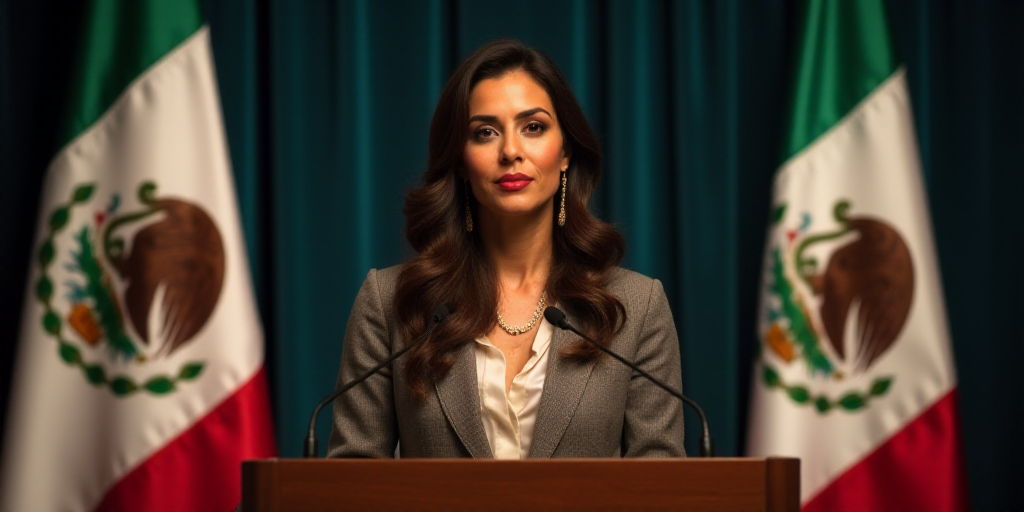Background on Claudia Sheinbaum and Her Role
Claudia Sheinbaum is the current Head of Government (equivalent to Mayor) of Mexico City, a prominent political figure in Mexico. She served as the Secretary of Environment under President Andrés Manuel López Obrador (AMLO) from 2018 to 2024. As part of AMLO’s administration, she has been instrumental in defending and explaining the health strategies implemented during his tenure.
Sheinbaum’s Defense of the Health Strategy
During a press conference, Claudia Sheinbaum defended the health strategy implemented under AMLO’s government. She asserted that the current model is “much better” than the former Seguro Popular program, which she claimed was plagued by corruption, outsourcing of responsibilities, and monopolistic practices in medication procurement and distribution.
Sheinbaum’s Perspective on Medication Shortages
In response to concerns about medication shortages in hospitals and pharmacies, Sheinbaum stated that any gaps during AMLO’s administration were addressed appropriately. She emphasized her commitment to supporting and caring for families, asserting that the previous system was marked by corruption and connections to outdated politicians and media.
Transitioning Away from Corrupt Practices
Sheinbaum explained that during the early years of AMLO’s government, the COVID-19 pandemic necessitated postponing certain surgeries and purchasing insignia to focus on the health emergency. Once this phase passed, efforts shifted towards constructing a new model through IMSS Bienestar to eliminate past corrupt practices.
Medication Supply Update by Subsecretary Eduardo Clark García
Eduardo Clark García, Subsecretary of Integration and Development in the Health Sector, addressed concerns about medication supply in public institutions. He reported that despite an earlier licitation’s nullity, medication supply remains secure, with over 11 million pesos in savings from new contracts.
Three Groups of Medications and Their Status
Clark divided the medication procurement process into three groups:
- High-cost medications (1,139 keys): These treatments for cancer and hemophilia were unaffected by the nullified licitation. Supply remains normal, resulting in significant savings compared to previous years.
- 954 types of medications: These were reassigned to suppliers demonstrating reliable delivery and offering better prices. Institutions can now formally contract these medications, representing 200 million pieces for 2025 and 2026. The estimated savings are over 11,600 million pesos compared to previous processes.
- 737 insumos (medical supplies): This group is undergoing reassignment through reverse auctions after detecting inflated prices or supplier non-compliance. To ensure supply while awaiting the reverse auctions’ conclusion, the government made an urgent purchase of 175 keys, securing 85 million pieces with immediate delivery and an additional savings of over 1,000 million pesos.
Key Questions and Answers
- Q: What is the current health strategy under AMLO’s government? A: The strategy aims to eliminate past corrupt practices in medication procurement and distribution, focusing on a new model through IMSS Bienestar.
- Q: How does Sheinbaum view medication shortages during AMLO’s administration? A: Sheinbaum asserts that any gaps were addressed appropriately, emphasizing her commitment to supporting families and criticizing the previous system’s corruption.
- Q: What is the status of medication supply in Mexico’s public institutions? A: Despite an earlier licitation’s nullity, medication supply remains secure, with significant savings from new contracts.
- Q: How are medications being categorized and procured under the new model? A: Medications are divided into three groups. High-cost medications continue normally, 954 types were reassigned to reliable suppliers, and 737 insumos are undergoing reassignment through reverse auctions.






